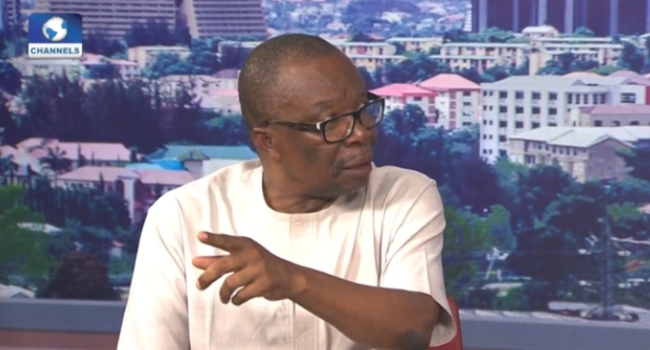PAG Felicitates Muslims on Commencement of Ramadan Fast
February 18, 2026TOP TEN MUSLIM UNIVERSITIES IN AFRICA
February 14, 2026ANALYSIS: Why Nigeria GDP is not the best in Africa Despite having the largest market
February 10, 2026FG Students Loans scheme “not sustainable” – ASUU President
FG Students Loans scheme “not sustainable” – ASUU President

Given the country’s poverty levels, the Academic Staff Union of Universities (ASUU) has warned that the Student Loan Bill recently signed into law by President Bola Ahmed Tinubu is not possible.
Prof Emmanuel Osodeke, National President of ASUU, stated this on Channels Television’s Sunday Politics.
Recall that president Tinubu signed the Students Loans Bill into law on Monday, fulfilling one among his campaign pledges.
The bill was sponsored by Femi Gbajabiamila, the Speaker of the 9th House of Representatives who is now the Chief of Staff to the president.
The law, which is now an Act, provides for interest-free loans to underprivileged Nigerian students.
The loan, according to the ASUU President, however, is not feasible. He stated that the scheme is “unsustainable.”
Osodeke said, “The idea of student loan came in 1972 and it was in a bank established. People who took loans never paid, you can go and investigate. In 1994, 1993, the military enacted Decree 50 also set up a Students’ Loan Board. The National Assembly domesticated it in 2004 and within a year, it went off. The money disappeared. We want to see how this one will be different.”
“We, as a union also did research of countries all over the world, of people who have benefited from this loan, they were committing suicide. Recently, (President Joe) Biden is trying to pay back the bank loans of some who borrowed in the US,” he said.
“It is better to look for alternative means of funding education than to encumbering students whose parents earn N30,000 a month with a loan.
The ASUU President also urged the president to amend the recently passed Students Loans Act to include provisions for poor students who are struggling with the current economic realities.
“This would have been better if we are giving it to those set of students who are very poor, it should be called a grant, not a loan.
“It should be called a grant since it is coming from the Federation Account and not that (after) these people have access it and when they are graduating, they have heavy loads behind them and within two years, if they don’t pay, they go to jail. That’s why we’re talking about collective bargaining, you have views from all the sides,” he stated.








